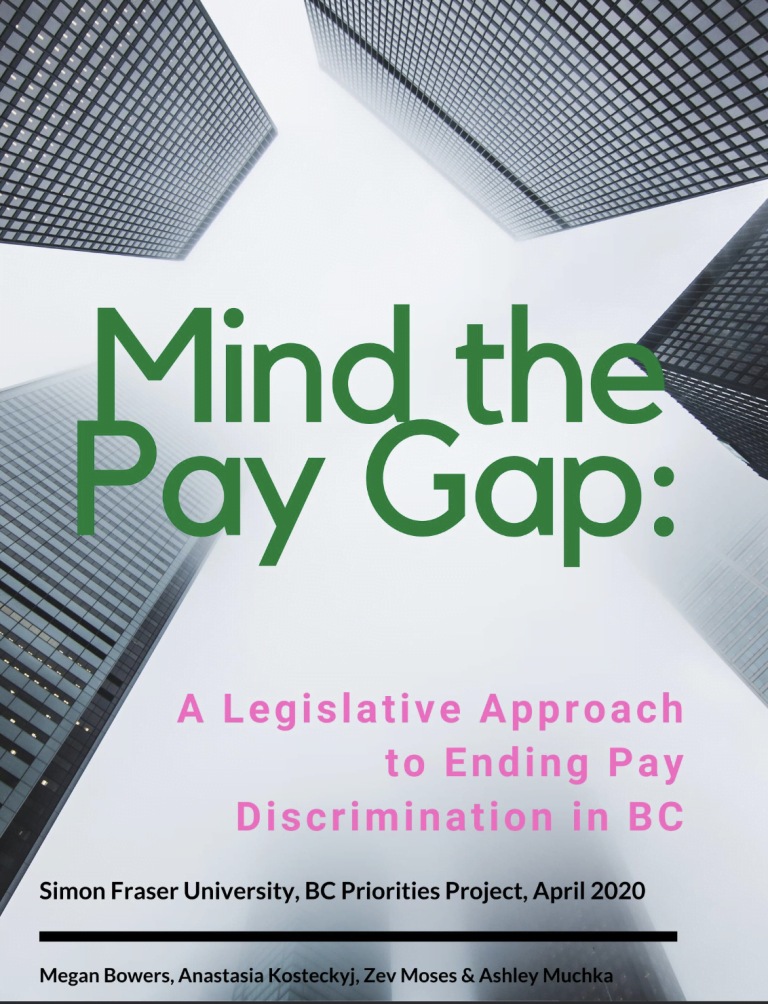2 search results
Short-term: Implement pay transparency & proactive pay equity legislation in B.C.
Recommendation 1: Pay transparency would help promote pay equality in BC by highlighting pay gaps that exist within firms and encouraging them to close those gaps. Importantly, this type of legislation provides a foundation for further action by mandating the release of the data needed to identify pay discrimination. The information and data can then be used to inform future policies. In contrast, pay equity legislation would help to address the systematic undervaluation of women’s work by analyzing the pay and value of jobs traditionally segregated by gender. Proactive pay equity is a complementary policy to pay transparency and can further reduce the pay gap by ensuring that people working in female-dominated occupational groups are being paid the same as other occupations of equivalent value.With that in mind, our research indicates that for any type of pay legislation that BC chooses to adopt, the effect on the gender pay gap is dependent on the details of policy design and adopted tools. Key elements include clear reporting requirements, sufficient guidance for businesses, and a well-funded oversight body.
-
Category and theme:
Groups affected:
Location of recommendation:
Long-term: Monitor Iceland’s equal pay certification model
Recommendation 2: Although this legislative approach is relatively new and untested, its potential for reducing the pay gap, contributing to poverty reduction, and helping other marginalized groups are all significant. Additionally, it approaches the issue in a way that pay transparency and pay equity do not, which ensures that pay discrimination against gender diverse people is identified and rectified. We recommend that this model, and the outcomes from its implementation in Iceland, continue to be studied and considered by policymakers. A pilot implementation period, where the equal pay standard is trialed in a select number of firms or government agencies, or establishing the equal pay standard as a voluntary certification that businesses can independently attain, would be the best ways to determine whether this policy is viable for BC. The BC government should consider consulting with business groups and labour unions about the design of a future equal pay certificate for the province. Such consultations were crucial for getting such a strenuous form of regulation passed in Iceland. These and other efforts to get all affected parties on board with the legislation will all contribute to making this policy more feasible in the future.-
Category and theme:
Audience:
Groups affected:
Location of recommendation:
